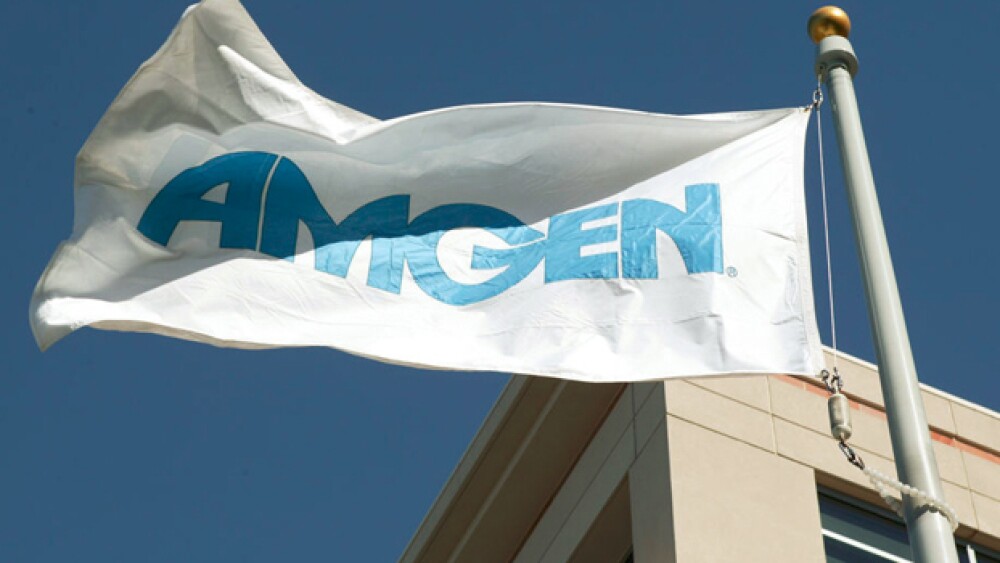Amgen gets to breathe a small, but temporary sigh of relief as a court case determining whether or not Novartis subsidiary Sandoz can launch its biosimilar challenge to blockbuster rheumatoid arthritis drug Enbrel has been delayed.
Amgen gets to breathe a small, but temporary sigh of relief as a court case determining whether or not Novartis subsidiary Sandoz can launch its biosimilar challenge to blockbuster rheumatoid arthritis drug Enbrel has been delayed.
A trial to determine the fate of the biosimilar was initially scheduled to begin later this month, but Amgen appears to have received a temporary delay until June. That will allow the company some extra time to reap the financial benefits of its medication being one of the key RA drugs on the market. Citing a note from Evercore analyst Umer Raffat Investor’s Business Daily reported that Sandoz attorneys were preparing for the trial to begin on June 20.
Amgen’s case hinges on two patents that cover entanercept, a fusion protein. Amgen’s patents do not expire until 2028 and 2029, respectively, Investor’s Business Daily reported. Sandoz is arguing that the patents are not “specific enough in describing the protein they cover,” according to the report.
Sandoz has been champing at the bit to launch its Enbrel biosimilar Erlezi in the United States. The U.S. Food and Drug Administration approved the biosimilar in 2016, but Amgen has been able to delay the launch due to patent disputes.
Enbrel was first approved in 1998. In 2017 the drug generated $5.43 billion in sales, despite seeing a decline of 9 percent from the previous year. Enbrel accounted for nearly one-fourth of Amgen’s total revenues last year, Investor’s Business Daily said. In his note, Raffat said the general consensus is that Enbrel will continue to decline in generated revenue this year. He anticipated the drug to only bring in $4.83 billion. That decline is expected to continue until 2025 when Enbrel will likely bring in only about $2.86 billion, Raffat said.
Biosimilar competition is becoming fierce as multiple companies are fighting for space to develop biosimilar therapies that will challenge traditional drugs manufactured by rival companies. Biosimilars, which are made inside a living cell, are always uniquely different in composition, which differentiates them from generic drugs, which are exact replicas of other drugs. They have been widely available in Europe since 2006, but the FDA was only granted the right to review and approve them when Obamacare was passed in 2010.
Amgen and Sandoz are no strangers as opponents in the courtroom. The companies went all the way to the U.S. Supreme Court last year over how long a company must wait before it can begin to market an approved biosimilar product. Sandoz won the case after the nation’s highest court ruled that biosimilar drugmakers do not have to wait an extra six months following regulatory approval to market their products. The case that made its way to the Supreme Court centered on Zarxio, Sandoz’ biosimilar to Amgen’s blockbuster cancer drug Neupogen. Zarxio was the first biosimilar approved in the United States.





